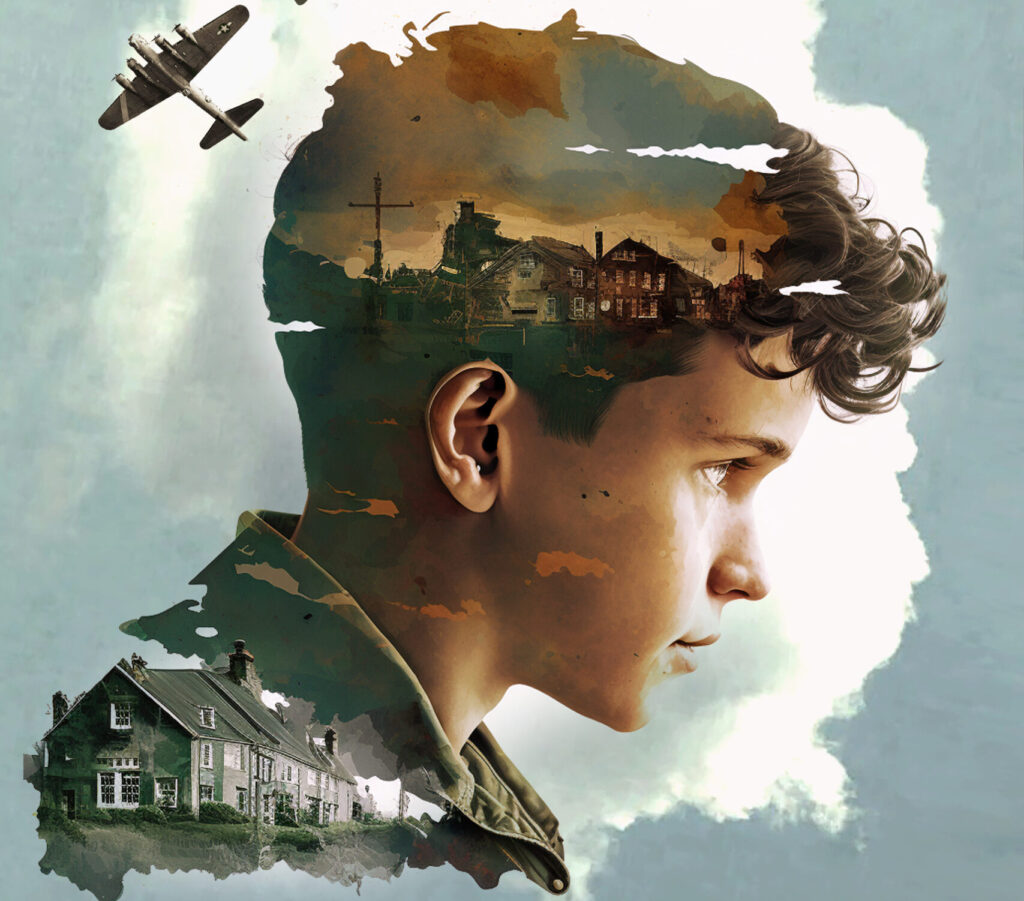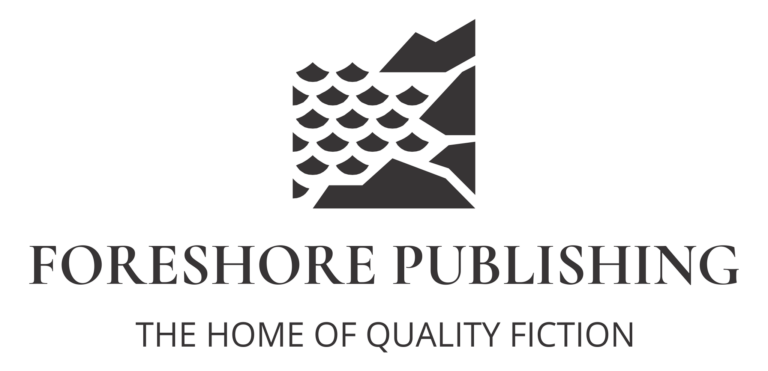
“I love Liverpool, and I love being a scouser”: writer Rachel Fegan discusses ’90s nostalgia, balancing family life and writing, and the birth of her debut novel, The Wonder Bra Years. Interview by Phil M. Shirley Growing up in the 70s and 80s with dreams of becoming a writer—a passion ignited at just 10 years old—I was fortunate to indulge in some of the finest British TV writing. Legends like Dick Clement, Ian La Frenais, Eric Chappell, and Carla Lane crafted classics like Porridge, Rising Damp, The Liver Birds, and Butterflies that shaped my early aspirations. Years later, while working as a sportswriter for the Liverpool Echo, I had the surreal experience of meeting Carla Lane, the brilliant mind behind two of those unforgettable shows – The Liver Birds, and Butterflies. Starstruck and unnervingly tongue-tied, I cherished every moment in the light of her literary presence. Carla Lane is one of only a few writers capable of trading in lacerating irony so effortlessly. I had two scripts – a few episodes of The Liver Birds and the “pilot’ for Butterflies (Lane’s masterpiece – a psychological drama that sneaked under the radar, onto prime-time TV, in the guise of a comedy) – that I studied religiously. I can’t remember where I got them from. Those were the days before the internet, so God knows how. But reading them made me understand and appreciate one of the greatest gifts a writer can have – the gift of identifying the great humour and pathos that exist in even the most seemingly ordinary life and presenting it on the page like it’s some kind of soul nectar one can absorb, through the mind and heart and skin. And then, a couple of years ago, I received an unsolicited manuscript titled The Wonder Bra Years by an unknown (to me) Liverpool writer, Rachel Fegan. The first paragraph blew me away in the way that Carla Lane’s writing did all those years ago. “Imagine the Liverpudlian equivalent of Narnia, but without a wardrobe! An icy blast from the North, a gap at the front door, and a shiver from the East. I was sitting on the bottom stair, next to the phone table, willing the bloody thing to ring.” For a moment, I could imagine Sandra (played by Nerys Hughes in The Liver Birds) musing over such imagery. Fegan’s words evoke that classic Liver Birds spirit. Why not draw parallels? I once penned in my novel The Rivers That Run Through Us “Life is a full circle; patterns emerge and return anew.” And, for me anyway, there are similarities between Lane and her work and Fegan and hers. The Liver Birds was a good but essentially broad comedy about the misadventures (romantic and otherwise) of two young working-class women at the end of the 1960s and during the 1970s.Fegan’s The Wonder Bra Years, a semi-biographical tale about a teenage girl growing up in Liverpool in the early 90s and the good and bad times, offers the same soul-stirring, raw but brilliant blending of comedy and drama, poignancy and piss-taking. The writing on The Wonder Bra Years is honest and hilarious. It captures so much of 90s culture that even the smallest details of the story are brilliant – an amazing observation of the Liverpool sense of humour. “I love Liverpool, and I love being a scouser,” Fegan expresses. “I’ve heard all the typical jokes about us – what do you call a scouser in a suit? – but I laugh them off. Liverpool’s spirit is incredible, which inspired me to write during the pandemic. I wanted to showcase our amazing city. And yes, the punchline to that joke is ‘The accused.’” Unlike Lane, who began writing as a young mother, Fegan’s literary journey blossomed later in her forties. Both women started from humble beginnings, without connections or traditional backgrounds, yet fearlessly explore the intricacies of their female characters. “I hope readers will connect with Nicky, my main character, and embrace her journey through life’s ups and downs,” Fegan shares. “Nicky celebrates her 18th birthday, her first job, and her initial experiences in nightclubs with a fake ID. Most people will relate to her first love, with all its complexities.” “I cherished the 80s, but the 90s truly ignited my spirit,” Fegan recalls. “It was such a vibrant time in Liverpool, brimming with fashion and music. I vividly remember sneaking into clubs dressed in my mum’s clothes at 16—how I got away with it, I’ll never know!” Fegan’s passion for her city shines through her work. The Wonder Bra Years is a nostalgic trip down memory lane, capturing the simple joys of the 90s before the internet and social media’s prevalence,” she explains. “It’ll spark memories and laughter, taking you back to beloved moments, from Crispy Pancakes to Merrydown Cider.” The book’s first draft took about 18 months, followed by another six months of refining. “The most challenging aspect was researching the 90s to ensure accuracy,” she admits. “As a first-time writer, juggling family life with twin daughters made it even more complex.” With exciting plans for the sequel in The Wonder Bra Years series and a children’s book on the horizon, plus the potential for screen adaptation, Fegan assures us that her stories will evoke a spectrum of emotions—laughter, joy, and nostalgia—as Nicky comes of age during that vibrant decade. BUY THE BOOK Rachel Fegan’s brilliant debut novel about a teenage girl growing up in Liverpool in the early 90s and the good and bad times. Paperback, on sale 16 June 2025. Add to Cart ABOUT THE AUTHOR RACHEL FEGAN, a writer from Liverpool, discovered her passion for storytelling in her late 40s during the COVID-19 pandemic. The Wonder Bra Years is her debut novel.

The Irish writer on his new film The Green Fella, the challenges of novel writing versus filmmaking and his fascination with the American Civil War. David McCann, 51, is an author, filmmaker and amateur historian whose books include the coming-of-age novel A Boy Called Yank. Born and raised in Northern Ireland, he lives in the Ulster town of Enniskillen where the controversial Irish playwright Oscar Wilde went to school and the IRA carried out their infamous Remembrance Sunday attack. How would you describe yourself: as an amateur historian, a novelist, or a filmmaker? It’s a tough question because I have many interests. Primarily, I would consider myself an amateur historian, and that passion has naturally led me to pursue both book writing and filmmaking. When did you develop an interest in history and storytelling through writing or filmmaking? My interest in history was sparked in primary school, particularly by the American Civil War. I’ve always had a fascination with history, though I can’t pinpoint exactly why. Back then, I was captivated by the stories of the Union and Confederates, spending countless hours reading about them. Our local library was a fantastic resource, offering a wealth of historical books that inspired me further. Additionally, living through the Troubles at that time added a unique layer to my understanding of history, though I didn’t fully grasp its significance as it unfolded around me. So you grew up during the Troubles in Northern Ireland? Yes, I was born in 1972, which was the worst year of the Troubles. I lived through a war zone for about 25 to 30 years. Despite this, you chose to direct your creativity toward other periods in Northern Ireland’s recent history, such as the 1920s and 1940s. I’m not certain it was a conscious decision; perhaps I subconsciously want to forget the seventies and eighties. There are already plenty of books and films about that period. Instead, my natural curiosity leads me to explore earlier times. Set in 1943 Enniskillen, your novel A Boy Called Yank follows Conor Cleary, a boy whose life is transformed by the arrival of American troops stationed in the town to aid the Allies in their fight against Nazi Germany during World War II. What inspired your interest in Enniskillen during this pivotal time in history? My grandfather lived in Enniskillen during that time, and when I was a child in the 1970s, he would share captivating stories with me. This sparked my interest, prompting me to research the presence of troops in the town back then. I realised there was a compelling tale to be told, especially since my grandfather recounted some unique events he witnessed one night in town. This inspired me to incorporate those experiences into a fictional narrative. Tell us about your latest film project. It’s called The Green Fella and focuses on the Royal Irish Constabulary, with the main character being Sergeant Collins. This film is the fourth and final instalment exploring the partition of Ireland in the 1920s. We plan to film around Tyrone and Monaghan, hopefully in February and March this year, and we have access to several beautiful rural locations that evoke the 1920s. This historical period serves as the backdrop for the Troubles, during which the Royal Irish Constabulary was the police force in what was then a united country. In 1921, however, it was partitioned into two states: the Irish Free State and Northern Ireland. What do you find more challenging: writing a novel or filmmaking? I find filmmaking to be significantly more demanding due to its logistical complexities and the challenges of scriptwriting. When I’m writing a story or a book, I can retreat to a comfortable space, immerse myself in music from that era, and read or watch documentaries to enhance my creativity. It becomes an enjoyable process. In contrast, filmmaking involves a lot of running around—searching for locations, coordinating with cameramen, actors, extras, and crew. Additionally, writing a script proves to be quite challenging for me. I believe I’m better at crafting stories for books than scripts. In fact, for this fourth film, which will be 50 minutes long, I currently have a professional scriptwriter assisting with the script. How long did it take to write A Boy Called Yank? Since it’s a relatively short story, the actual writing process took about four to five months. I had gathered the entire narrative from various people around the town, many of whom had connections to the American Army. It was a rich and compelling story drawn from real life, influenced by accounts from my grandfather and others. Their stories always resonated with me, making it clear that they needed to be captured on paper. While some elements are based on true events, there are also fictional ideas woven in from my perspective. For instance, I included General Patton in the story; although he was in town, I crafted a narrative that linked his time there with the fictional boy and the soldier I created. What else is happening for you in 2025? Apart from filming The Green Fella, we are discussing plans to relaunch A Boy Called Yank in the U.S. and Canada. This includes the possibility of a film adaptation and the development of a prequel. BUY THE BOOK An exploration of friendship and adventure. An unforgettable coming-of-age story of small-town adolescence and universal experience. Thirteen-year-old Conor Cleary lives with his mother in a cottage in County Fermanagh, Northern Ireland. With little contact with the outside world and nothing much to do, life is uneventful. Until one day the United States Army are posted in Fermanagh on their way to fight in mainland Europe during the Second World War, and Conor’s life changes forever. Genre: Historical Fiction/Young AdultFormat: 96 pages, paperbackISBN: 978-1-7393949-0-5 Add to Cart ABOUT THE AUTHOR DAVID MCCANN is a film maker and producer of two short films set in 1920s Ireland titled Sgt Collins RIC & The Green Fella. He has worked as a hospital porter and an Irish Police Officer



